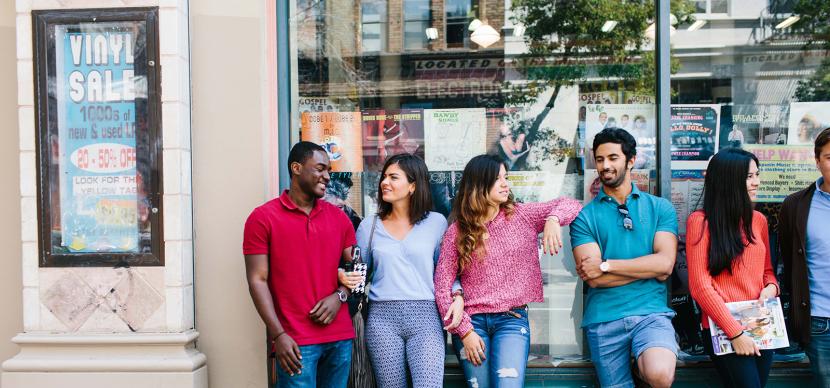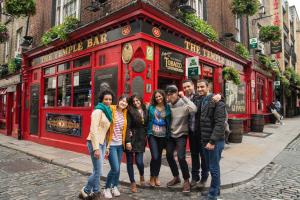Learning the Etymology of the English slang

The etymology of words in the English language can be very rich and diverse. English has evolved over millenia and has been influenced by Latin, German, French, Gaelic and even Viking words! Understanding the origin of some standard English words can be interesting, but have you come across some slang words that sound bizarre and wondered where they came from?
Slang, or colloquial, language is often specific to a certain destination or region, so it can take on some interesting traits from the area. We have compiled some words you might come across when studying in one of our destinations.
Trackie Dacks
Slang: An Australian word for warm tracksuit trousers/pants
Example: It's cold out today - better put on your trackie dacks!
Etymology:
Trackies are what Australians call track suits, because of their habit of using a shortened diminutive (smaller or "baby version") word.
Dacks is an Australian word for trousers - either long trousers, shorts, or underwear. The context you use the word in makes a big difference! If it's cold and someone is wearing trousers, it then this is what it means. However, if a girl is wearing a dress or a skirt, then it refers to her underwear.
If you want to know more
Learning the Etymology of the English Language
"Shotgun!"
Noun: the act of claiming the position of front seat near the driver for oneself
Example: Are we leaving now? I call shotgun!
The Theory:
The term "Shotgun" refers to the front passenger seat of a car. "Calling Shotgun" is the act of claiming the position of Shotgun for one's self. As this is the most popular position when riding in a car, there is actually a list of rules created to ensure that Shotgun can be called in a fair manner by any passenger of a car.
Etymology:
The history of calling "Shotgun" goes back to the days of covered wagons and the Wild West. On a trip across the plains, the driver of a wagon would hold the reins of his horse team and concentrate on driving. This left him and the passengers of his wagon open to sneak attacks from bandits and thieves. To avoid this, it became necessary for one person to sit next to the driver with a shotgun and fend off the enemy.
This tradition is present mostly in the USA, although people in Australia and UK use it as well.
S'Mores
Noun: S’more is a popular camping dessert in the US and Canada. You roast a marshmellow on the fireplace then put it between two gram crackers with chocolate.
Etymology:
The word is a contraction of the phrase “some more”.
Billabong
Noun: A billabong is a still pool of water that is formed when a branch of a river or a lake is disconnected from the river's source
Example:
"Once a jolly swagman camped by a billabong, under the shade of a coolibah tree"
- 'Waltzing Matilda' by Banjo Paterson
Etymology:
The word "billabong" is believed to come from the Wiradjuri word 'bilabang' which means lake. The Wiradjuri are a group Australian Aborigines. Because billabongs stay wet for longer than rivers in the summer, it was important for these people to name them and know where they were.
 617 275-5955
617 275-5955



